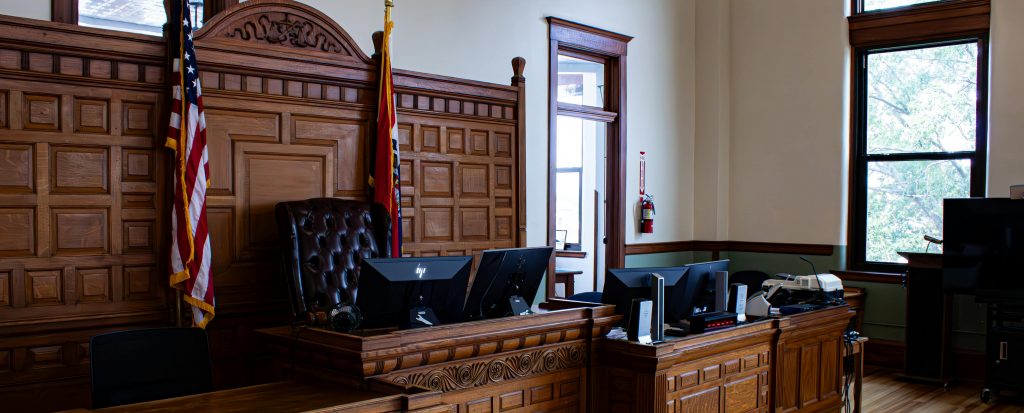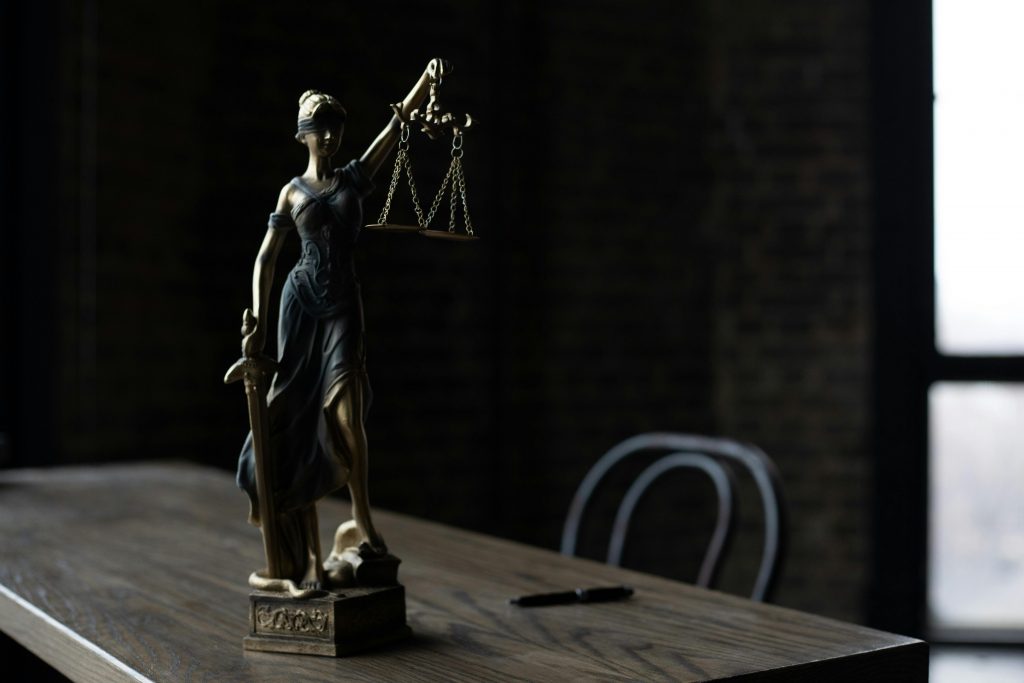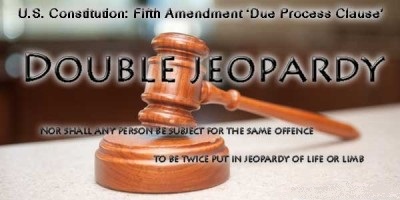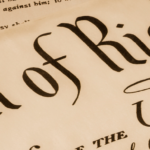Michigan Criminal Procedure, Double Jeopardy, and Dismissals
If you’ve been charged with a crime and were previously charged with an offense from the same incident, you may have a double jeopardy claim for dismissal.

A Second Prosecution for the Same Crime Might Violate Double Jeopardy Protections
The United States Supreme Court, in the case of Evans v Michigan, determined that when a trial court enters a directed verdict of not guilty, which is based on a mistake of law, the erroneous acquittal constitutes a permanent not guilty verdict for double jeopardy purposes which bars any further prosecution. In Evans, the trial court granted a directed verdict of Not Guilty after the prosecution rested. The judge ruled that the defendant was not guilty as a matter of law because the prosecution provided insufficient evidence of a particular element of the offense. However, the trial court made a mistake because the element the court found was unproven was not actually an element of the crime that was charged. The United States Supreme Court decided there was “no meaningful constitutional distinction between a trial court’s misconstruction of a statute and its erroneous addition of a statutory element” for double jeopardy purposes. In this case, the trial court should have granted the defendant’s double jeopardy claim for dismissal.

What is double jeopardy?
Double jeopardy is a legal concept enshrined in the Fifth Amendment to the United States Constitution, which protects individuals from being tried twice for the same offense. This foundational principle ensures that once a person has been acquitted or convicted of a particular crime, they cannot be subjected to prosecution for the same crime again on the same facts. Double jeopardy applies to all levels of government and covers prosecutions for the same conduct, even if different legal descriptions are used.
The doctrine of double jeopardy includes three key protections: firstly, it prevents the government from retrying an individual after an acquittal; secondly, it prohibits retrial after a conviction, ensuring that one’s legal battles do not become endless even after serving their sentence; and thirdly, it forbids multiple punishments for the same offense, safeguarding individuals from being penalized more than once for a single transgression.
However, there are exceptions and nuances to this rule. Double jeopardy does not apply if the subsequent trial is for a different crime or based on other facts. Additionally, separate sovereigns (such as state and federal governments) can prosecute the same individual for the same conduct under their respective laws without violating double jeopardy protections.
Understanding double jeopardy is crucial for anyone navigating the criminal justice system, as it directly impacts the legal strategies employed by defense attorneys. A skilled criminal defense lawyer can effectively argue double jeopardy to prevent unjust retrial or excessive punishment, which is pivotal in protecting clients’ rights and freedoms.
What is the history of double jeopardy and claims for dismissal?
Double jeopardy is a legal doctrine rooted deeply in the history of legal systems worldwide, tracing its origins back to ancient civilizations. The principle of double jeopardy, which prohibits an individual from being tried twice for the same offense, can be found as early as the Roman law principle “non bis in idem,” meaning “not twice in the same [thing].” This concept was designed to protect individuals from the state’s oppressive power by ensuring that the government cannot repeatedly prosecute someone for the same crime, thereby avoiding potential abuses of power and providing a sense of finality and justice for the accused.
Double jeopardy was so fundamental to the notions of fairness and justice that it was enshrined in English common law, which heavily influenced the legal systems of its former colonies, including the United States. Recognizing its importance, the framers of the U.S. Constitution incorporated this principle into the Fifth Amendment, which explicitly states that no person shall “be subject for the same offense to be twice put in jeopardy of life or limb.” This protection was a direct response to the British crown’s arbitrary and often abusive practices against the colonists, reflecting the founders’ commitment to individual rights and limitations on governmental power.
Throughout its history in U.S. law, the doctrine of double jeopardy has evolved through various landmark Supreme Court cases, which have clarified its application and exceptions. These cases have addressed complex issues such as what constitutes the “same offense,” when jeopardy attaches in a trial, and the specific circumstances under which the protections against double jeopardy apply. Despite these legal nuances, the core principle remains a cornerstone of American criminal law, safeguarding the liberty of individuals by preventing the government from using its vast resources to wear down and unfairly convict citizens.
Does a probation violation based on a new criminal charge violate double jeopardy?
Double jeopardy, as outlined in the Fifth Amendment, prevents someone from being tried twice for the same offense. However, this principle does not apply to probation violations triggered by new criminal charges. Probation is considered a conditional release, and violating its terms, such as committing a new crime, can lead to revocation of probation and imposition of the original sentence. This is because the probation revocation is for failing to meet the probation’s conditions, not the new crime itself.
Moreover, proceedings for a probation violation and a new criminal charge are separate matters. The probation hearing addresses whether the terms of probation were breached, while the new criminal charge is treated through its legal process. Thus, facing legal action for a new offense while on probation does not constitute double jeopardy, as they are considered distinct legal issues.
Understanding the separation between probation violations and new criminal charges is crucial. For those navigating these waters, seeking advice from a knowledgeable criminal defense attorney can help protect one’s rights and provide a more straightforward path forward.

Michigan criminal defense attorney with expertise in double jeopardy matters
The case of Michigan v Evans is one of the few recent United States Supreme Court cases favorable toward the person charged with a crime. If you face criminal charges, it is essential that you have expert legal representation who is aware of the continuing changes in criminal law, including double jeopardy claims for dismissal. The good and affordable attorneys at LEWIS & DICKSTEIN, P.L.L.C. are diligent with keeping up with changes in the law so that the people they represent have cutting-edge legal assistance. Your best defense starts here!
Call us today at (248) 263-6800 for a free consultation or complete an online Request for Assistance Form. We will contact you promptly and find a way to help you.















